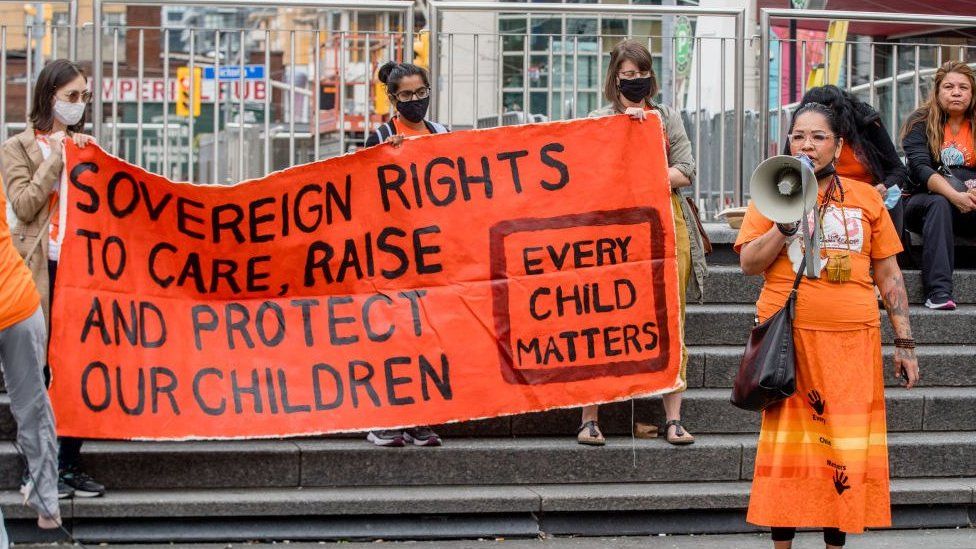ARTICLE AD BOX
 Image source, Getty Images
Image source, Getty Images
More than half of the children in Canadian foster homes are indigenous, despite them making up less than 8% of the country's child population, census data shows
Canada's Human Rights Tribunal has approved a landmark C$23.4bn ($17.7bn; £13.8bn) settlement for indigenous children and families harmed by the child welfare system.
It is said to be the largest class-action settlement in Canadian history.
The agreement also includes a request for an apology from the Prime Minister of Canada Justin Trudeau.
Around 300,000 people are expected to be compensated, including babies and children currently in care.
The settlement, approved on Wednesday, comes after the tribunal ruled in 2016 that Canada had underfunded on-reserve First Nations children's services compared to those for non-indigenous children.
This resulted in indigenous children being removed from their families unnecessarily and denied basic services, the ruling said.
Cindy Blackstock, the executive director of the First Nations Child and Family Caring Society who has helped negotiate the settlement, said the funds will go to indigenous people who were impacted by the child welfare system from 1991 to 2022.
"There are babies who are eligible for compensation," Ms Blackstock told BBC News. "A large number of these children in care are actually still children."
A federal court will review the settlement in October. If approved, those who are eligible could begin to receive the amount they are owed as early as summer 2024.
It is part of a long-running legal battle that began in 2007, when the First Nations Child and Family Caring Society filed a complaint alleging the child welfare system was discriminatory.
Nine years later, the Canadian Human Rights Tribunal (CHRT) ruled against the federal government and ordered that it offer compensation payments worth C$40,000 plus interest for each indigenous child forced to leave their home to access services.
That amount is the maximum allowed under Canada's Human Rights Act.
Others, like caregivers and parents, as well as the children's estates, are also entitled to compensation.
At one point, the Canadian government challenged the findings, arguing that the tribunal was wrong to award the pay-outs. At the time, Prime Minister Justin Trudeau said that his cabinet wanted to "make sure we're getting compensation right".
Later, the government said it would pay C$40bn - with C$20bn going to children and their families, and the other half going to child welfare reform.
That proposal was rejected by the CHRT in late 2022 because of fears that some children would be left out or not compensated enough.
Canada and the Assembly of First Nations then agreed to increase the settlement amount to C$23.3bn in April.
Marc Miller, the minister responsible for crown-indigenous relations at the time, has said the agreement is "an important part of Canada's accountability towards First Nations children".
The class-action settlement is one of the largest in North America, surpassed only by a $20bn pay-out from BP in 2010 to cover environmental damage caused by an oil spill in the Gulf of Mexico, and a $206bn lawsuit against tobacco companies in 1998 to recover healthcare costs for tobacco-related illnesses.
Canada residential schools: "Six years old, I was imprisoned here"

 1 year ago
74
1 year ago
74








 English (US) ·
English (US) ·